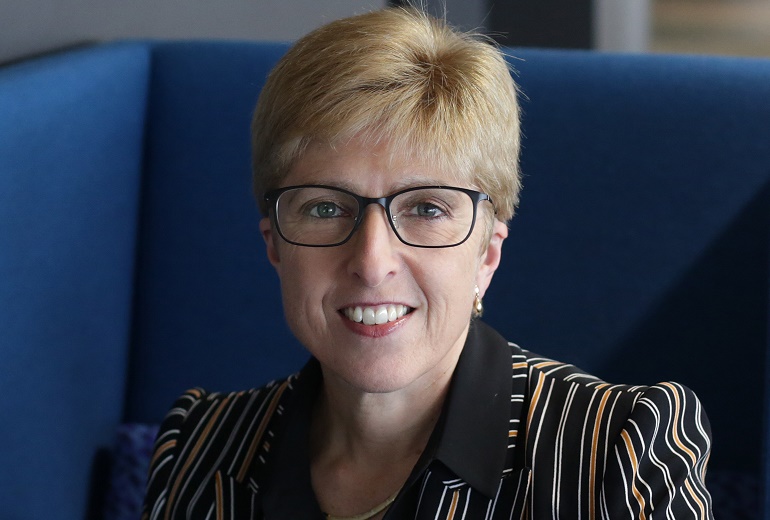Welcome to our Innovator Series that showcases some of Australia’s innovators, and movers and shakers, in and around ICT.
This week, Information Age speaks to Jacqueline Korhonen.
When Jacqueline Korhonen joined IBM as an ambitious young graduate in 1985, Google didn’t exist, Australia was yet to join the internet and the iPhone wouldn’t be released for another two decades.
Korhonen’s new employer had only released the first ever personal computer four years earlier, and the IT industry wasn’t anywhere near as large or crucial as it is today. But change was on its way.
“When I joined IBM, I could see that IT was really becoming fundamental to all different industries. I could see that being in the IT industry would be a great future for a graduate,” Korhonen says.
The new IBM employee had received a dual degree in science and engineering from the University of Sydney and had also studied at Harvard Business School and the Australian Institute of Company Directors.
Korhonen remained at IBM for 23 years, and eventually worked her way up to being vice-president of the company’s Australia and New Zealand operations. During this time, she travelled and worked across the Asia region, and was given a first-hand look at how quickly the tech industry was developing and transforming around the globe, proving to be a major turning point in her career.
“I think doing that really broadened my perspective and gave me a lot of experience personally and professionally to help me develop. That point where I started to get real international experience was a turning point,” she says.
After more than two decades at IBM, Korhonen left to take on the role of country CEO of India-based $8 billion IT giant, Infosys. Following her time there, she returned home to Australia to lead ASX-listed IT firm SMS Management and Technology.
This proved to be a major learning curve for the IT professional, and she resigned after just over a year in the job.
“That was a good learning experience because running a locally listed company is very different to running a division of a large global company,” she says.
Late last year, Korhonen returned to where it all started, taking on the General Manager of Global Technology Services, Australia and New Zealand, role at IBM.
Her new role is a bit different though.
“We see ourselves as being the backbone of our clients, and we have so many significant clients that we feel like we’re the backbone of the economy,” she says.
While earlier in her career success was much more about personal achievements and awards, it’s now measured in terms of management.
“Now my role is really about enabling people. It’s about seeing my team and their teams under them do well professionally, develop skills, have job satisfaction and get real personal satisfaction,” Korhonen says.
The one constant across her three decade-long career in IT has been change. Korhonen has been witness to, and been an active participant in, the growth and development of the internet and technology as we know it – and seeing what’s to come next is what drives her now.
“I don’t think there’s a better industry to work in than IT – look at the way IT has changed the world and enabled other industries,” she says.
“What keeps me engaged is really seeing how the industry is enabling change in so many areas of the world. That’s what keeps you going – the IT industry is never dull.”
Keeping up with these changes and always looking to the future is crucial for anyone else looking to follow in Korhonen’s footsteps.
“Always try to put yourself wherever you see the industry going in the future and make sure you keep your skills aligned there,” she says.
And, she adds, always try to look at the big picture.
“Your career will be a marathon, not a sprint. When you have a period when things aren’t going well, you have to rise above that and look at your career over many years,” Korhonen says.
Making the next generation aware of the opportunities and benefits of a career in IT is the biggest challenge facing the industry, she says.
Korhonen has been a member of ACS since 2012, and says this is perhaps the most important role that the organisation plays.
“The IT industry has a very important role to play in educating people about what an IT career actually looks like. People know what a doctor does, they know what an accountant does, but parents and young people don’t really understand what an IT career can be,” she says.
“I think that’s a really important message we’ve got to start getting out into the community. There’s a huge spectrum of IT careers that people can have and I don’t think we’ve done a good job of making people see that and how exciting it is.
“The ACS has a really pivotal role in helping us to do that.”









